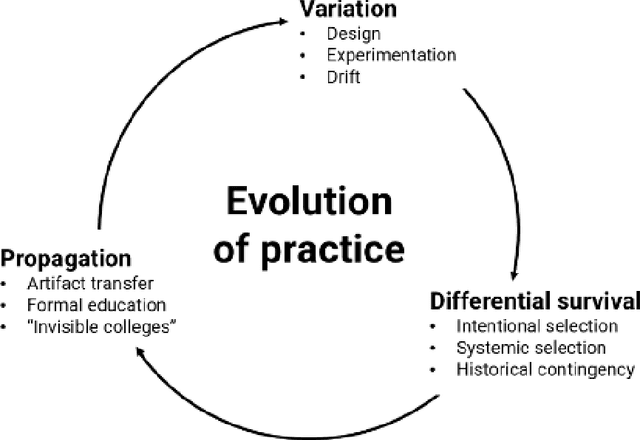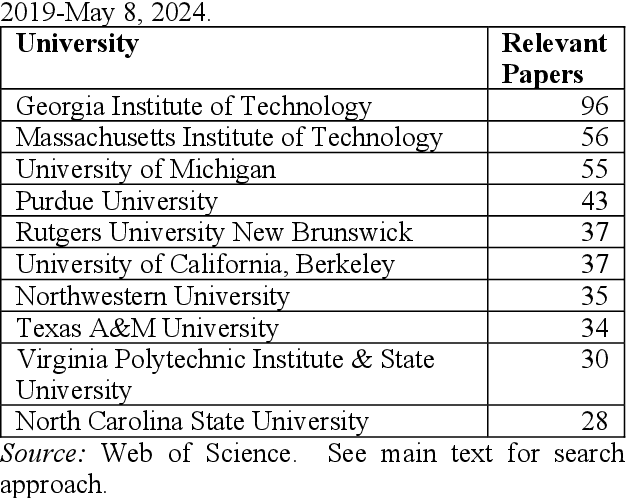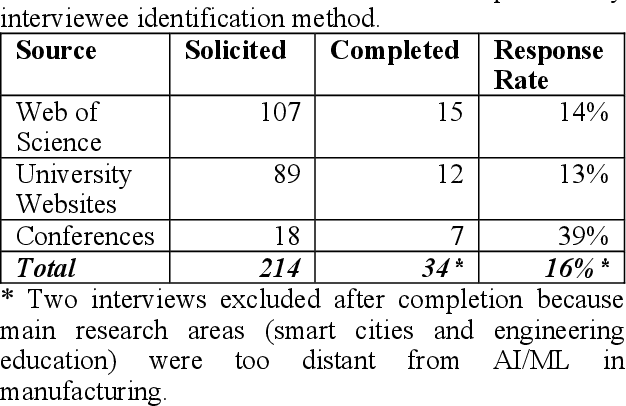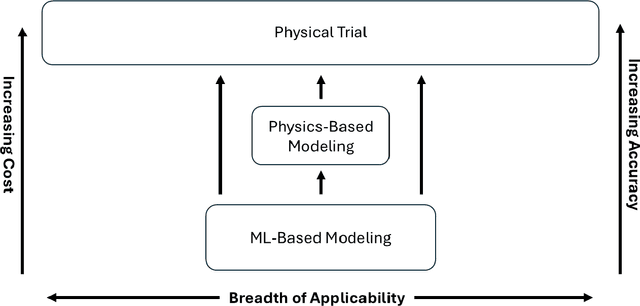Justin B. Biddle
Can Artificial Intelligence Accelerate Technological Progress? Researchers' Perspectives on AI in Manufacturing and Materials Science
Nov 18, 2025



Abstract:Artificial intelligence (AI) raises expectations of substantial increases in rates of technological and scientific progress, but such anticipations are often not connected to detailed ground-level studies of AI use in innovation processes. Accordingly, it remains unclear how and to what extent AI can accelerate innovation. To help to fill this gap, we report results from 32 interviews with U.S.-based academic manufacturing and materials sciences researchers experienced with AI and machine learning (ML) techniques. Interviewees primarily used AI for modeling of materials and manufacturing processes, facilitating cheaper and more rapid search of design spaces for materials and manufacturing processes alike. They report benefits including cost, time, and computation savings in technology development. However, interviewees also report that AI/ML tools are unreliable outside design spaces for which dense data are already available; that they require skilled and judicious application in tandem with older research techniques; and that AI/ML tools may detrimentally circumvent opportunities for disruptive theoretical advancement. Based on these results, we suggest there is reason for optimism about acceleration in sustaining innovations through the use of to AI/ML; but that support for conventional empirical, computational, and theoretical research is required to maintain the likelihood of further major advances in manufacturing and materials science.
Report on the Conference on Ethical and Responsible Design in the National AI Institutes: A Summary of Challenges
Jul 18, 2024Abstract:In May 2023, the Georgia Tech Ethics, Technology, and Human Interaction Center organized the Conference on Ethical and Responsible Design in the National AI Institutes. Representatives from the National AI Research Institutes that had been established as of January 2023 were invited to attend; researchers representing 14 Institutes attended and participated. The conference focused on three questions: What are the main challenges that the National AI Institutes are facing with regard to the responsible design of AI systems? What are promising lines of inquiry to address these challenges? What are possible points of collaboration? Over the course of the conference, a revised version of the first question became a focal point: What are the challenges that the Institutes face in identifying ethical and responsible design practices and in implementing them in the AI development process? This document summarizes the challenges that representatives from the Institutes in attendance highlighted.
Applications and Societal Implications of Artificial Intelligence in Manufacturing: A Systematic Review
Jul 25, 2023

Abstract:This paper undertakes a systematic review of relevant extant literature to consider the potential societal implications of the growth of AI in manufacturing. We analyze the extensive range of AI applications in this domain, such as interfirm logistics coordination, firm procurement management, predictive maintenance, and shop-floor monitoring and control of processes, machinery, and workers. Additionally, we explore the uncertain societal implications of industrial AI, including its impact on the workforce, job upskilling and deskilling, cybersecurity vulnerability, and environmental consequences. After building a typology of AI applications in manufacturing, we highlight the diverse possibilities for AI's implementation at different scales and application types. We discuss the importance of considering AI's implications both for individual firms and for society at large, encompassing economic prosperity, equity, environmental health, and community safety and security. The study finds that there is a predominantly optimistic outlook in prior literature regarding AI's impact on firms, but that there is substantial debate and contention about adverse effects and the nature of AI's societal implications. The paper draws analogies to historical cases and other examples to provide a contextual perspective on potential societal effects of industrial AI. Ultimately, beneficial integration of AI in manufacturing will depend on the choices and priorities of various stakeholders, including firms and their managers and owners, technology developers, civil society organizations, and governments. A broad and balanced awareness of opportunities and risks among stakeholders is vital not only for successful and safe technical implementation but also to construct a socially beneficial and sustainable future for manufacturing in the age of AI.
 Add to Chrome
Add to Chrome Add to Firefox
Add to Firefox Add to Edge
Add to Edge